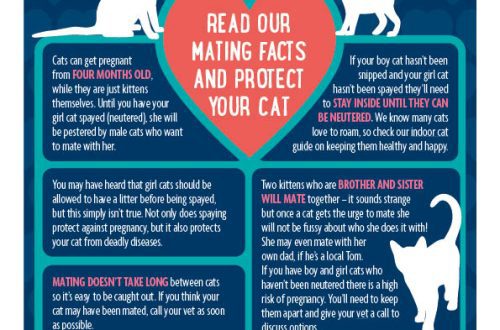
When are kittens spayed?
In a previous article we examined in detail what sterilization and castration are, listed the pros and cons of the procedure. Today we will tell you at what age cats and kittens are sterilized and why.
The minimum age for castration of a male kitten is 6 months, for a female kitten – 6-8 months. At an earlier age, the operation is permissible only if indicated, because the body (in particular the genitourinary system) is not yet fully formed, and the consequences of such a procedure are at risk of being negative.
Most experts recommend that the procedure be performed at 1 year. It’s better not to rush here. At 6 months, the kitten’s reproductive system is already formed, while the body continues to develop throughout the first year of life. Only during this period, the immune system begins to work in full force and small fragile kittens turn into strong and hardy young cats that can easily endure such an operation.
Sterilization and castration at an early age (up to 6 months) leads to pathologies in the development of the skeleton and internal organs, the risk of diseases (for example, KSD) – and is often accompanied by complications.
If 1 year old is the ideal age to spay (or castrate) a kitten, then what about older pets?
Any veterinarian will answer that the main thing is not the age (with the exception of the minimum limit), but the state of health of the cat. If your pet is healthy and strong, it doesn’t matter if you bring him for sterilization at 2, 3 or 6 years old. It is important that there are no serious problems with his health and that the body can endure the surgical intervention without consequences.
For the same reason, spaying and neutering older cats is not recommended. In the “old men” the cardiovascular system weakens and other negative age-related changes appear. Therefore, “retired” cats are best left alone. This is not the right age for categorical changes.
Only strong, clinically healthy animals are allowed to be sterilized and castrated.
Be sure to consult with your veterinarian before planning your procedure. He will schedule an examination for the cat and conduct the necessary tests so that nothing threatens the health of your four-legged friend.





